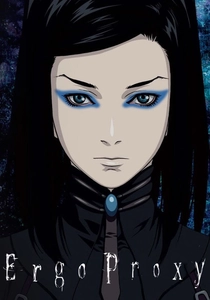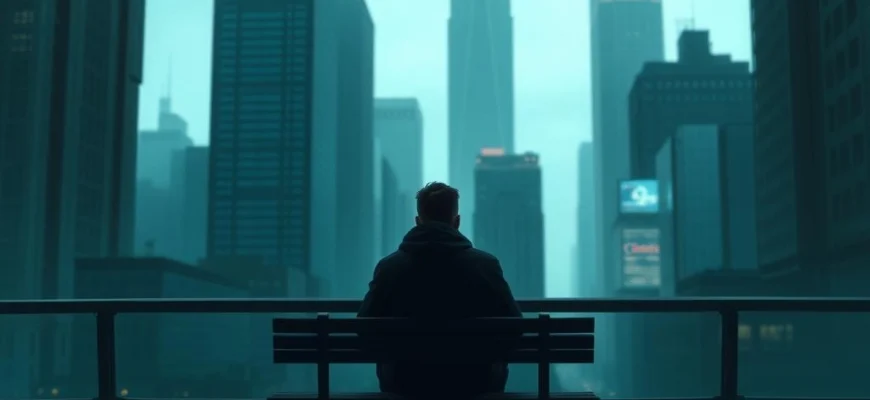If you loved the dark humor, psychological depth, and offbeat charm of 'Welcome to the N.H.K. (2006),' you're in for a treat! This article explores 10 similar movies and shows that capture its themes of isolation, self-discovery, and societal pressures. Whether you're a fan of anime, psychological dramas, or quirky storytelling, these recommendations will keep you hooked.

Neon Genesis Evangelion (1995)
Description: Explores deep psychological themes, existential crises, and the struggles of isolated individuals in a surreal, often dystopian setting. The protagonist's mental health and societal withdrawal are central to the narrative.
Fact: Originally intended to be a more traditional mecha anime, but evolved into a deeply psychological and philosophical series due to the creator's personal struggles.
 Watch Now
Watch Now 
Boogiepop Phantom (2000)
Description: A dark, psychological series that examines the fractured minds of its characters, often through a non-linear narrative. Themes of identity, trauma, and societal alienation are prevalent.
Fact: The series is a sequel to the light novel 'Boogiepop and Others' and is known for its eerie atmosphere and complex storytelling.
 Watch Now
Watch Now 
Ghost in the Shell: Stand Alone Complex (2002)
Description: Examines themes of identity, technology, and the human psyche in a cyberpunk setting. The series often delves into the psychological impact of living in a highly advanced, yet isolating, society.
Fact: The series is part of the larger 'Ghost in the Shell' franchise, which has influenced numerous sci-fi works, including 'The Matrix.'
 Watch Now
Watch Now 
Haibane Renmei (2002)
Description: Focuses on themes of redemption, self-discovery, and the search for meaning in a mysterious, enclosed world. The protagonist's journey mirrors the struggles of those dealing with guilt and isolation.
Fact: The series was created by Yoshitoshi ABe, who also worked on 'Serial Experiments Lain,' and was originally based on his own doujinshi (self-published work).
 Watch Now
Watch Now 
Paranoia Agent (2004)
Description: Delves into the collective anxiety and paranoia of modern society, with characters facing personal demons and societal pressures. The storytelling is non-linear and surreal, often blurring the line between reality and delusion.
Fact: The series was created by Satoshi Kon, known for his psychological and mind-bending narratives, and was his only foray into television anime.
 Watch Now
Watch Now 
Mind Game (2004)
Description: A chaotic, visually stunning exploration of life, death, and self-discovery. The protagonist's existential crisis is portrayed through a mix of surrealism and dark humor.
Fact: The film was directed by Masaaki Yuasa, known for his unconventional animation style and storytelling techniques.
 Watch Now
Watch Now 
Ergo Proxy (2006)
Description: A philosophical and psychological exploration of identity, free will, and existential dread in a dystopian future. The protagonist's journey is marked by introspection and societal critique.
Fact: The series incorporates elements of postmodern philosophy and features a unique, bleak visual style.
 Watch Now
Watch Now 
Paprika (2006)
Description: Blurs the boundaries between dreams and reality, exploring the subconscious mind and the psychological turmoil of its characters. The narrative is surreal and visually inventive.
Fact: The film was a major influence on Christopher Nolan's 'Inception,' particularly in its depiction of dream worlds.
 Watch Now
Watch Now 
Psycho-Pass (2012)
Description: A dystopian series that explores the psychological effects of living under a surveillance state, where one's mental state can determine their fate. The protagonist grapples with morality and societal expectations.
Fact: The series was written by Gen Urobuchi, known for his dark and philosophical storytelling in works like 'Madoka Magica.'
 Watch Now
Watch Now 
Death Parade (2015)
Description: Focuses on the psychological and emotional struggles of its characters, who are judged in the afterlife. The series delves into themes of regret, redemption, and the human condition.
Fact: The series was inspired by a short film called 'Death Billiards,' which was part of the 'Young Animator Training Project.'
 Watch Now
Watch Now 








